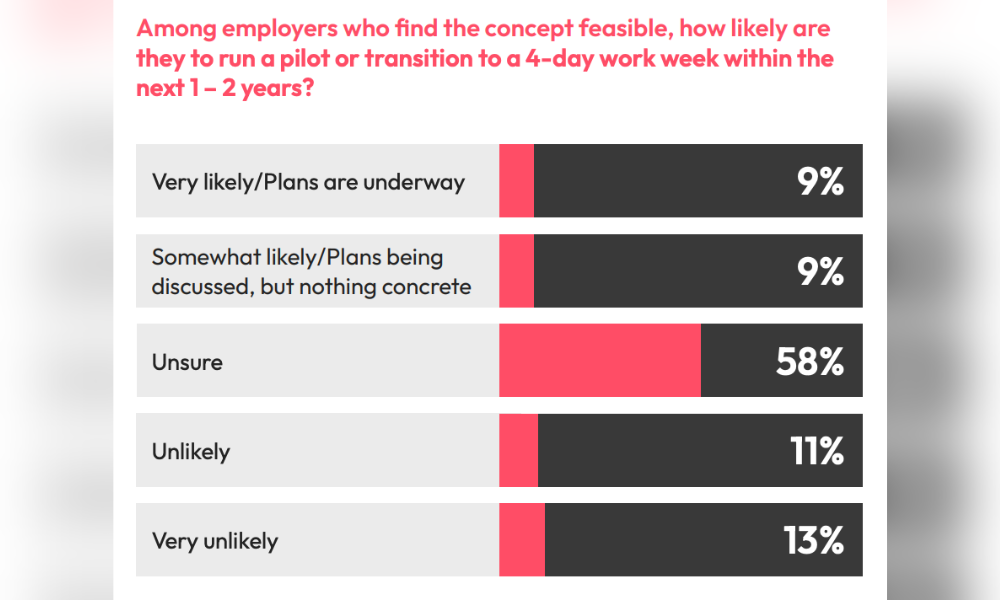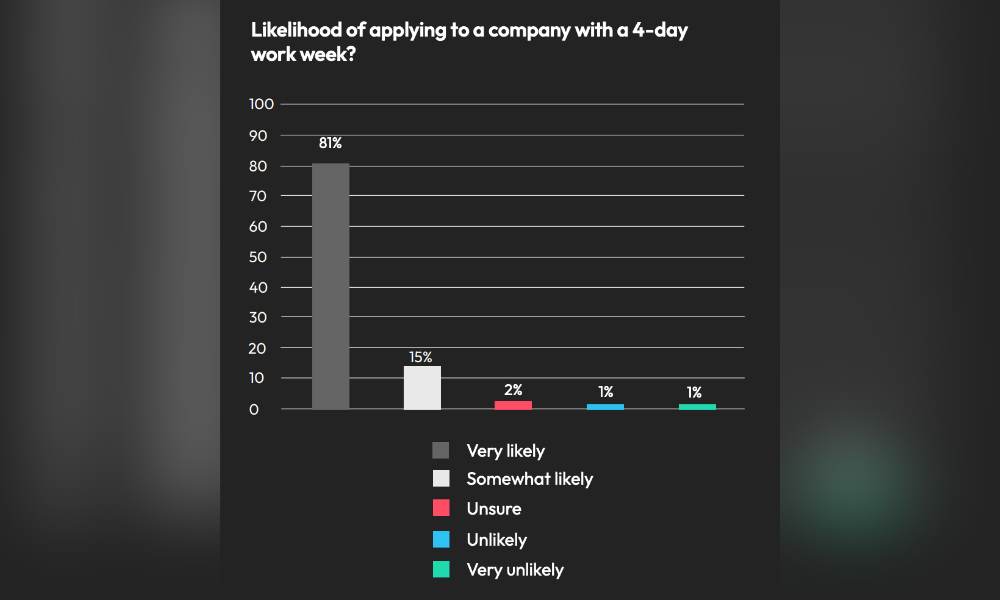
But many still unsure about transitioning to shorter workweek: survey

Nearly seven in 10 employers in Singapore think a four-day work week may be feasible, but more than half of them said they are unlikely to trial the arrangement in the next year or two, according to a new report.
Robert Walters Singapore found that 69% of Singaporean employers consider the four-day work week a "feasible concept" as they feel it can increase productivity levels.
Another 90% also said they believe it will improve employee well-being.
Despite this, 58% of employers said they are "unsure" when it comes to implementing a trial or transitioning to a four-day work week in the next one to two years.
In fact, 11% said this was "unlikely," while 13% said it was "very unlikely."
According to the report, 73% of employers in Singapore are worried about the challenges of implementing a four-day work week across the entire office, which may result in employee unhappiness.

Source: Robert Walters
Employers' sentiments and plans on the four-day work week come amid strong demand from employees, according to the Robert Walters report.
It found that 93% of professionals there want their employers to implement a four-day work week trial, with their top reasons being:
The report also found that 96% of Singaporeans are more inclined to apply for jobs at companies offering a four-day work week. In fact, the desire for the work arrangement is so strong that they are willing to give up:

Source: Robert Walters
While more than half of employers are not likely to introduce a four-day work week anytime soon, there are others who expressed openness to other work models such as:
Monty Sujanani, country manager at Robert Walters Singapore, said embracing flexibility can be "critical" for employers as it can set them apart as an employer of choice.
"Embracing flexibility and innovative work arrangements can help attract top talent, while also driving productivity and employee satisfaction," Sujanani said in the report.
The report comes as employers in Singapore have been mandated to start considering their employees' formal requests for flexible work arrangements (FWAs) starting December.